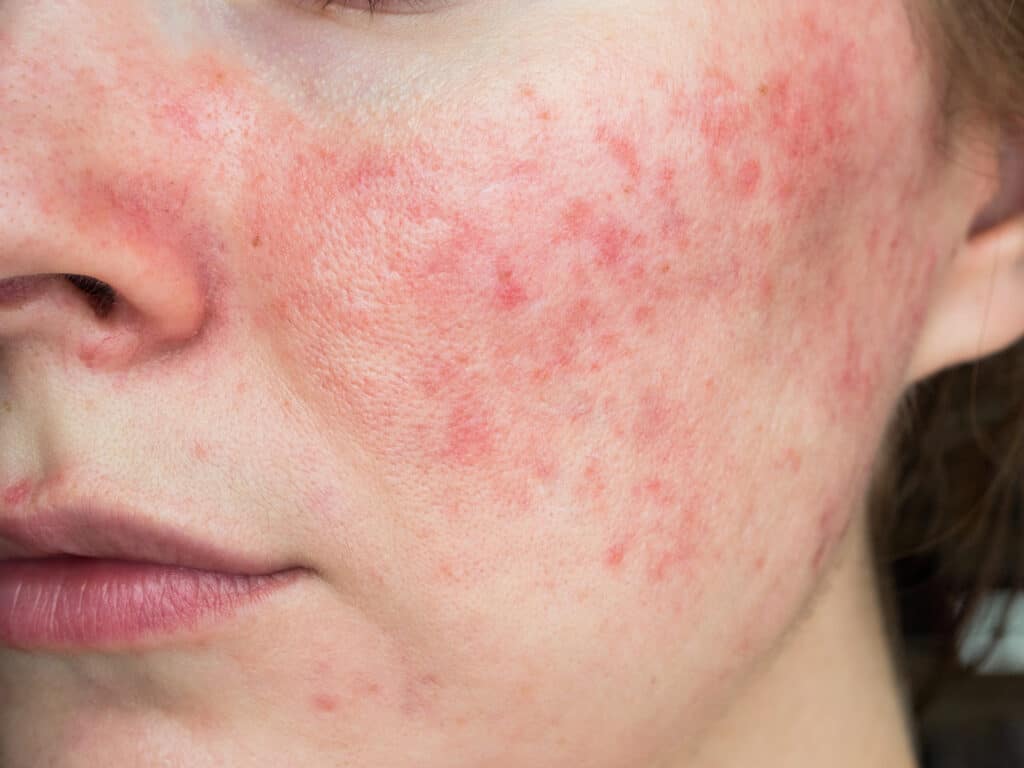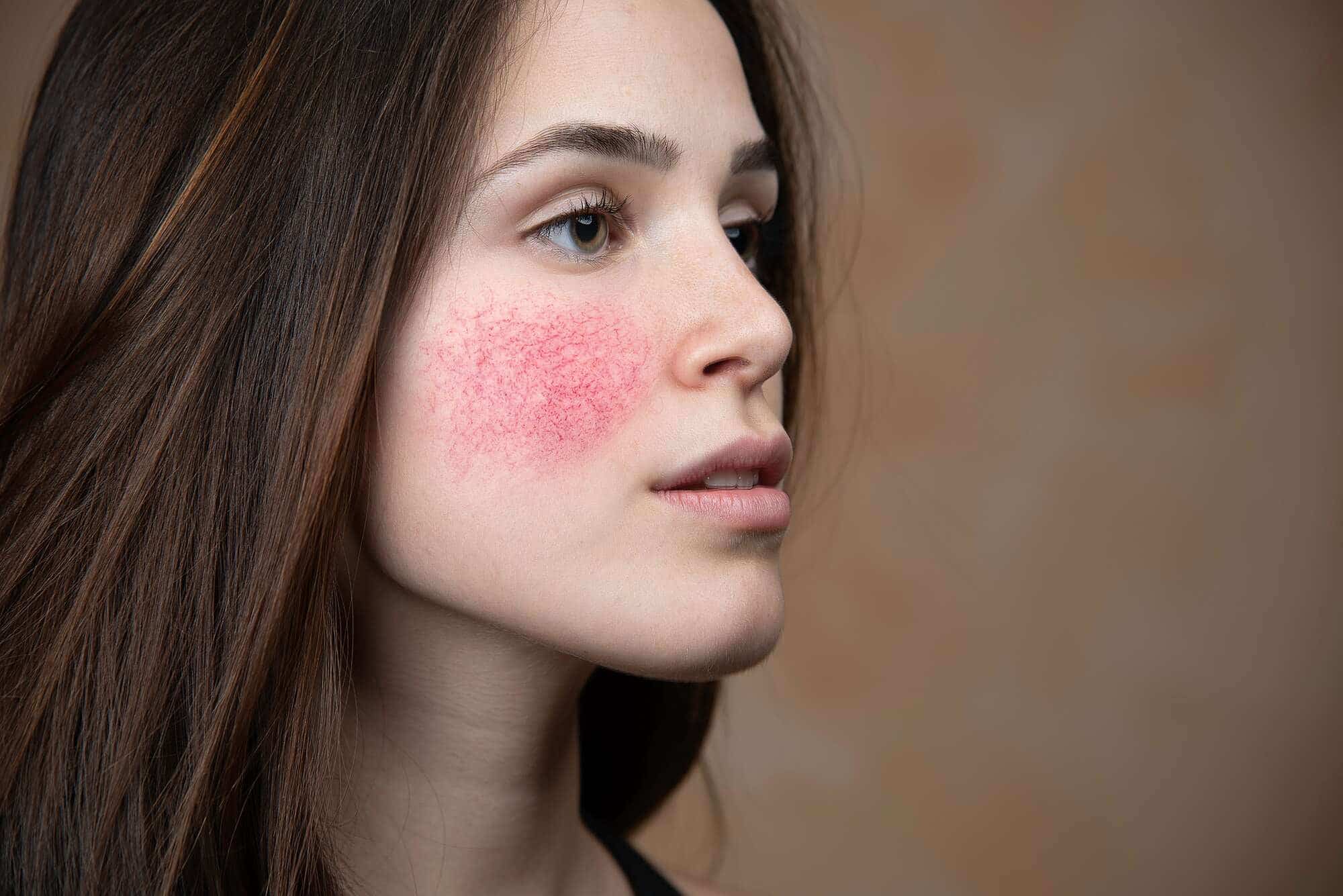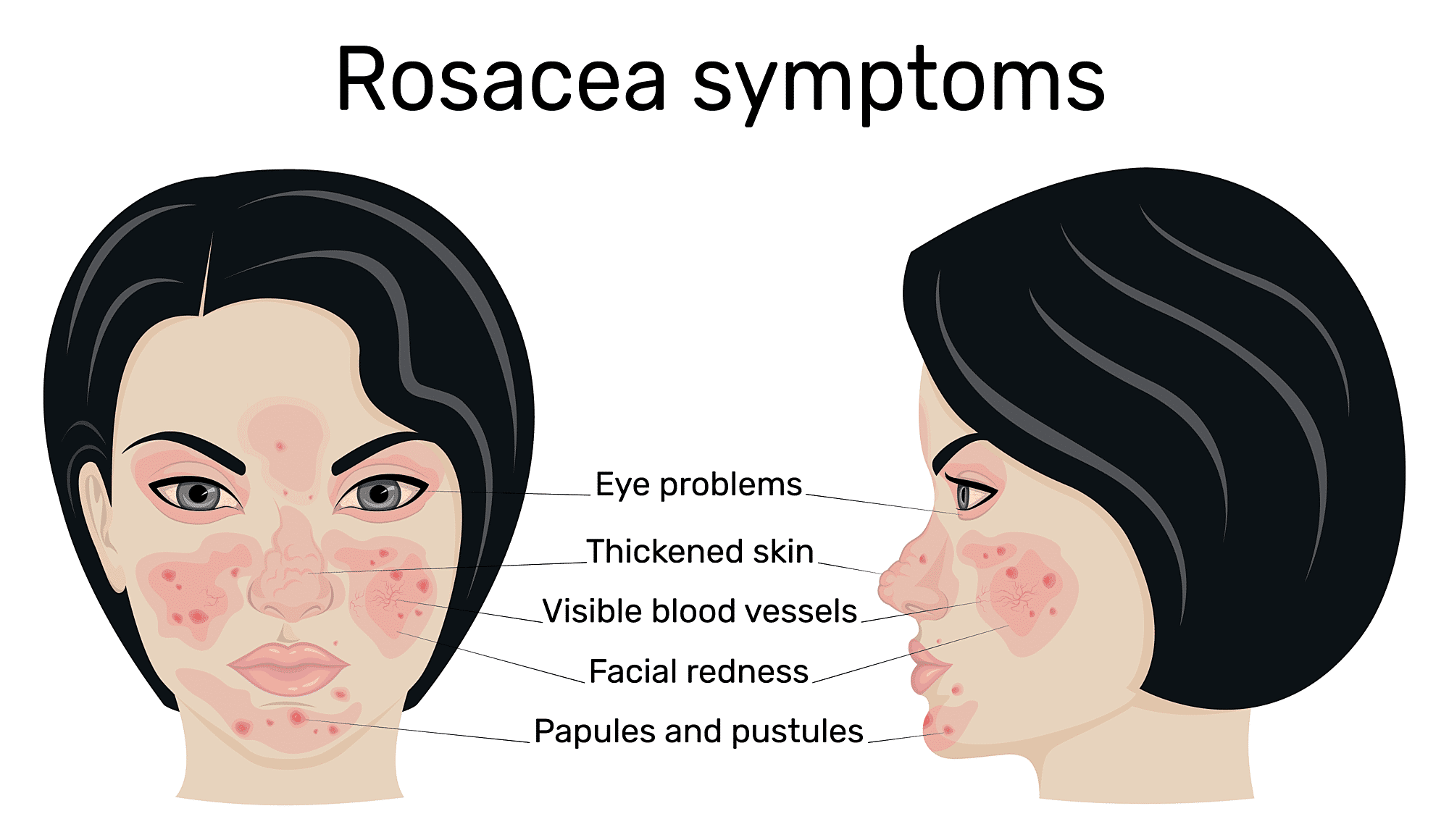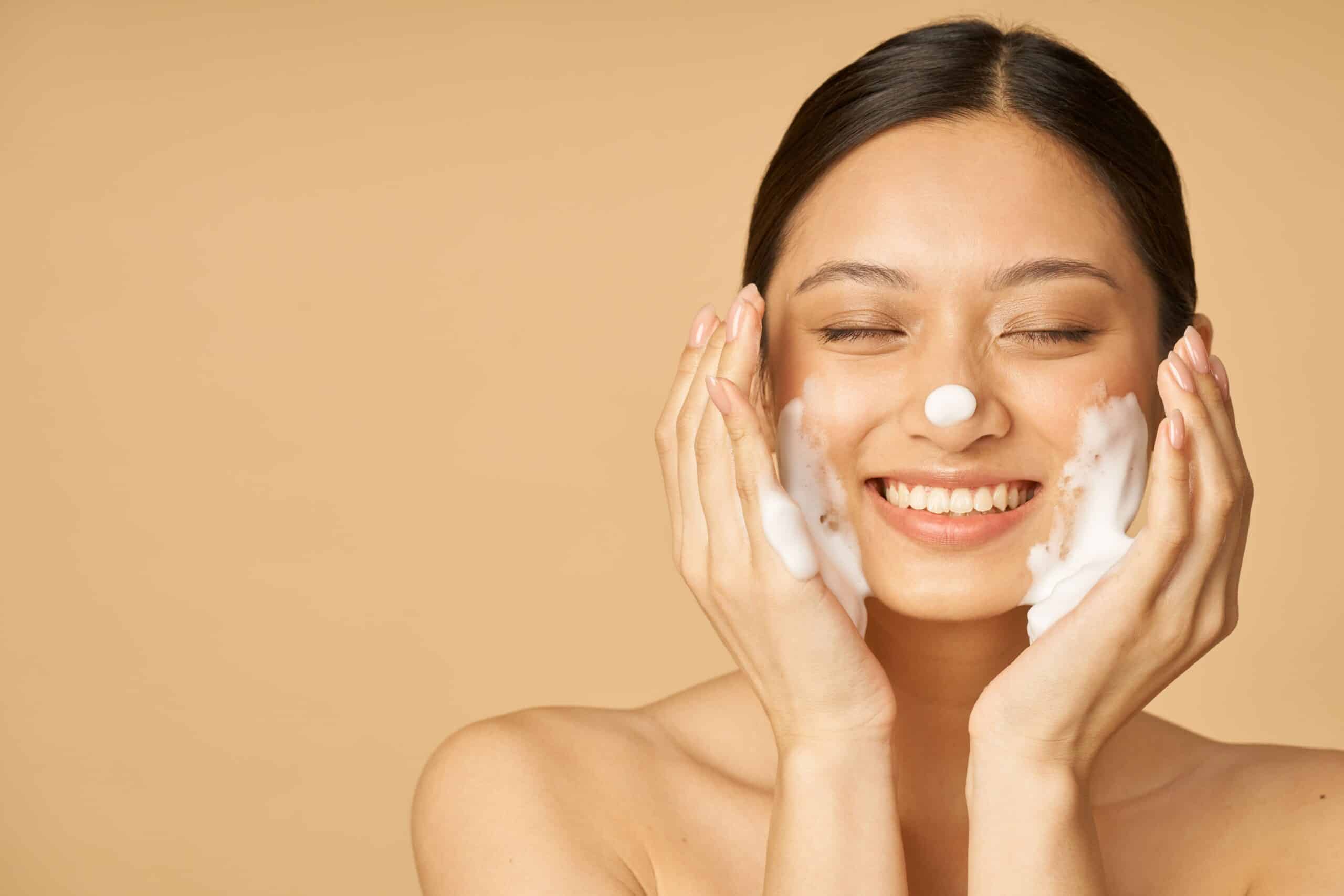
5 Common Rosacea Triggers And How To Soothe Them
- May 20, 2022


Rosacea is a common skin condition affecting an estimated 14 million people worldwide. Its characteristics include redness, inflammation, and sometimes pimples on the face. While the cause of rosacea is unknown, certain things can trigger it.
This blog post will discuss five common rosacea triggers and how to soothe them! Read on to learn more.
Rosacea is a chronic condition that causes redness and inflammation on the face. It typically affects the central area of the face, including the forehead, nose, and cheeks.
Rosacea can also cause the formation of tiny, red bumps on the skin. In severe cases, the condition can lead to the skin thickening and developing cysts where it needs a rosacea treatment in Singapore.
Although rosacea is often considered a cosmetic problem, it can significantly impact a person’s quality of life.
The condition can cause embarrassment and anxiety and lead to social isolation.

The symptoms of rosacea can vary from person to person. They may include:
The exact cause of rosacea is unknown. Some experts agree that genetic and environmental factors likely cause the condition. Some studies have found that dermodex mites might be a cause for rosacea too given that they are frequently found in larger quantities for rosacea patients. However, other researchers have argued that this might be a result of rosacea rather than a cause.
While there is no known cure for rosacea, there are rosacea treat there are certain things that can trigger it. These triggers can cause the symptoms of rosacea to flare up.
Read More: What Causes Rosacea?
Many different things can trigger the symptoms of rosacea. Some of the most common triggers include:
Rosacea can be triggered by extreme weather conditions, such as cold weather, wind, and heat and sun. Exposure to these elements can cause the redness and inflammation associated with rosacea. This is because the skin is more sensitive in people with rosacea. Blood vessels may also dilate more quickly, which can cause the redness to worsen.
Protecting the skin from extreme weather conditions is vital to avoid this. This can be done by wearing suitable head gears to cover the face , sunscreen with an SPF of 50 and PA+++ or higher, and avoiding hot showers and baths.
Intense physical exercise tends to increase body temperature which may result in flushing and a flare-up of rosacea symptoms
Stress is a common trigger for rosacea. When a person is under stress, the body releases certain hormones that can cause inflammation.
One example is cortisol. This hormone is released in response to stress, and it can cause the blood vessels to dilate, resulting in the characteristic flush of rosacea. In addition, stress can weaken the immune system, making the skin more susceptible to infections and other irritants.
Therefore, it is essential to manage stress levels to keep rosacea under control.
There are many different ways to reduce stress, such as exercise, meditation, and spending time in nature. Finding what works best for you and incorporating it into your daily routine can make a big difference in managing your rosacea.
Certain foods and drinks can trigger the symptoms of rosacea. These include alcohol, spicy food, cinnamaldehyde-containing foods (such as tomatoes, citrus fruits, chocolate), hot drinks, and histamine-rich foods (such as aged cheese, wine, processed meats).
For some people, moderate amounts of these triggers can cause a flare-up. Others may tolerate them in small quantities or after taking measures to reduce the risk of a reaction.
If you have rosacea, it’s important to experiment to see what works for you. Keep a diary of your diet and any flare-ups that occur. This can help you identify your triggers and avoid them in the future.
You can minimize your symptoms and enjoy a healthy lifestyle with careful management.
Exposure to specific allergens can trigger the symptoms of rosacea. These include pollen, dust, and animal dander.
For some people, avoiding these triggers is enough to keep their rosacea under control. Others may need to take additional measures, such as using air purifiers or wearing protective clothing.
If you have rosacea and are exposed to an allergen, you may experience a flare-up. This can be treated with over-the-counter or prescription medications.
Certain Skin Care Products
Many skin care products contain ingredients that can trigger the symptoms of rosacea. These include alcohol, fragrance, and other harsh chemicals.
To avoid a reaction, it is important to read the labels of all skin care products carefully. Only use products that are designed for sensitive skin.
Talking to a dermatologist or an aesthetics doctor about what products are best for you may also be helpful. They may be able to recommend products that are less likely to cause a reaction. Additionally, they can advise on how to care for your skin properly.
Aside from rosacea treatment in Singapore, while it is inevitable to experience a rosacea flare-up from time to time, there are some things you can do to soothe the symptoms. Some helpful tips include:
A cold compress or a towel dipped in cold water can help to reduce the redness and inflammation associated with a rosacea flare-up. The cold temperature can also help to constrict the blood vessels and reduce swelling.
Cold compresses can be applied as often as needed to relieve rosacea symptoms.
A rosacea-friendly moisturizer can help soothe inflammation and hydrate the skin when applied to the skin. Look for products that contain ingredients such as ceramides, aloe vera or chamomile.
These can help to reduce inflammation and hydrate the skin without aggravating symptoms. Apply the moisturizer twice daily, after cleansing and before applying sunscreen.

Cleansing the skin too harshly can aggravate rosacea symptoms. Choose a gentle, non-abrasive cleanser and use lukewarm water when washing the face.
Avoid scrubbing or rubbing the skin too vigorously. Instead, use your fingertips to massage the cleanser into your skin in a gentle, circular motion. Rinse the skin with cool water and pat dry with a soft towel.
Dry air can aggravate rosacea symptoms. To help relieve dryness, run a humidifier in your home or office.
This will add moisture to the air and help keep your skin hydrated. Be sure to clean the humidifier regularly to prevent mould and bacteria growth.
Sun exposure can trigger the symptoms of rosacea and make them worse. To protect your skin, apply sunscreen daily, even on cloudy days.
Look for a sunscreen with an SPF of 50 and PA+++ or higher designed for sensitive skin. Be sure to apply it generously and reapply it every two hours or as directed on the label.
Several skin rosacea treatments in Singapore that can help to improve the appearance of rosacea. These include:
Creams and gels can be applied directly to the skin to help reduce the redness and inflammation associated with rosacea. These medications may need to be used long-term to see results.
Creams containing ivermectin, such as Soolantra, have anti-parasitic and anti-inflammatory properties. These are effective in tackling dermodex mites which is strongly linked to rosacea based on various medical research.
Brimonidine is a gel that is applied once daily to the skin. It helps to reduce redness and inflammation by constricting the blood vessels.
Meanwhile, metronidazole is a cream or gel applied to the skin twice daily. It can help to reduce the inflammation and swelling associated with rosacea.
Oral medications, such as antibiotics, may be prescribed to help treat rosacea symptoms. These drugs can help to reduce inflammation and kill bacteria on the skin.
Tetracyclines, such as doxycycline, are a type of antibiotic commonly used to treat rosacea. These drugs are taken orally, typically once or twice daily.
Stromectol may be used as an adjunct in the treatment of rosacea by reducing the number of Demodex mites in the skin, thereby reducing inflammation and improving the control of rosacea.
For people who experience redness and inflammation, rosacea laser therapy may be an option. Laser therapy uses intense pulses of light to target and constricts the blood vessels causing redness.
This treatment can be done in a doctor’s office and typically requires multiple sessions to see results.
Pico laser and intense pulsed light (IPL) are two types of laser therapy that may be used to treat rosacea symptoms.
Azelaic acid is a naturally occurring compound derived from wheat, barley, and rye. It is available in a gel or cream form and is applied to the skin twice daily.
Azelaic acid helps reduce the redness and inflammation associated with rosacea by inhibiting the growth of acne-causing bacteria and decreasing keratin production.
Isotretinoin is a medication that is taken orally to treat severe acne. It can also treat rosacea that has not responded to other treatments.
The drug works by reducing oil production on the skin and preventing the growth of acne-causing bacteria.
Isotretinoin can cause serious side effects, so it is only used as a last resort for people with rosacea.
If you suspect that you might be suffering from rosacea, see a doctor for an evaluation. Rosacea is a chronic condition that can worsen over time, so getting treatment early is essential.
Your doctor can diagnose rosacea based on your medical history and a physical examination of your skin. They may also order a skin biopsy to rule out other conditions.
If you have rosacea, your doctor may recommend various treatments, depending on the severity of your symptoms. These treatments can help improve your skin’s appearance and prevent the symptoms from worsening.
If you are living with rosacea, you may have many questions about the condition. Here are some answers to frequently asked questions about rosacea:
Rosacea is a chronic condition that can last for years. The symptoms may come and go, but the underlying inflammation is not curable.
With treatment, you can control the symptoms of rosacea and prevent them from getting worse. Be sure to see your doctor for evaluation and treatment if you think you may have this condition.
Self-care measures, such as gentle skin care and avoiding triggers, can help control rosacea’s symptoms. In some cases, prescription medications may be necessary to get the condition under control.
Rosacea is most common in adults, but children can also get the condition. Children with rosacea may have a family history of the condition and tend to have fair skin.
The symptoms of rosacea in children are similar to those in adults. Still, they may also experience bumps and pimples on the face. Children with rosacea should see a doctor for an evaluation and treatment.
Your doctor will likely diagnose rosacea based on your medical history and a physical examination of your skin.
You may also need to undergo tests or procedures if you have complications of rosacea, such as eye problems.
Rosacea can be very frustrating to deal with. The good news is that there are treatments available that can help to improve the symptoms.
If you think you may have rosacea, be sure to see your doctor for an evaluation. You can control the condition and prevent it from getting worse with treatment.
The team of doctors at SL Aesthetic Clinic noticed an increasing trend of rosacea patients. As such, we developed a rosacea laser treatment in Singapore and a line of products with this group of patients in mind. We understand how rosacea can affect your confidence and quality of life. Our team will work with you to develop a treatment plan tailored to your individual needs.
For more information on rosacea or to book an appointment, please contact us today.
We look forward to minimising the impact of rosacea on your life!
Like what you read? Share them!